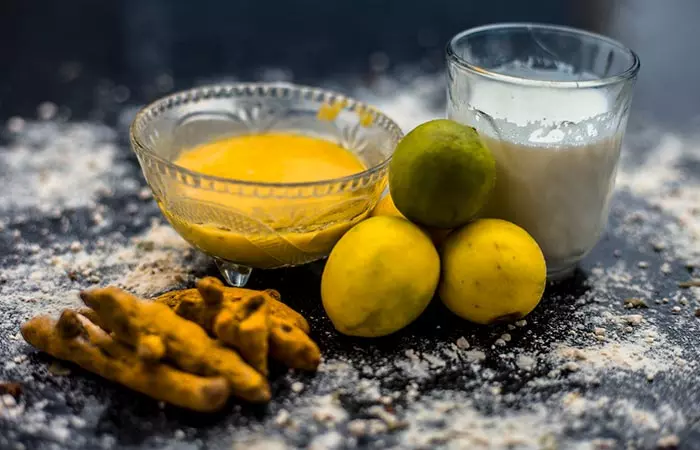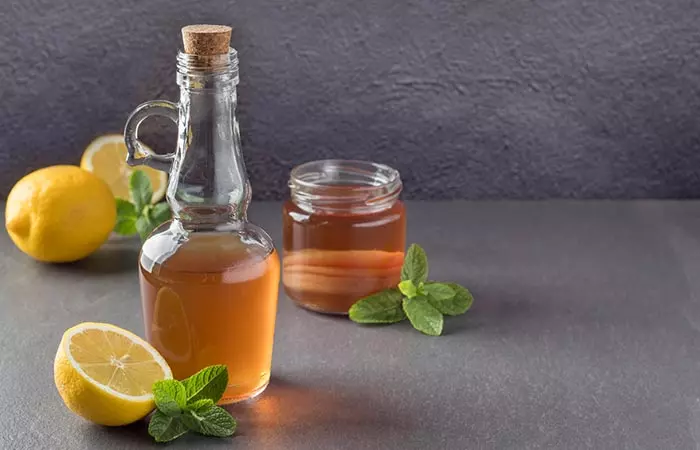Dark spots, also known as hyperpigmentation, can be a common skin concern for many individuals. While there are various treatments available, some may prefer natural remedies. Lemon juice is often touted as a natural solution for lightening dark spots due to its acidic properties and vitamin C content. In this comprehensive guide from WellHealthOrganic, we’ll explore how to effectively use lemon juice to remove dark spots and achieve clearer, brighter skin.
Understanding Dark Spots
What Are Dark Spots?
Dark spots, or hyperpigmentation, occur when excess melanin forms deposits in the skin. They can be caused by sun exposure, hormonal changes, aging, acne scars, and other factors. While they’re not harmful, many people seek ways to reduce their appearance for cosmetic reasons.
Benefits of Lemon Juice for Dark Spots
1. Natural Bleaching Agent
Lemon juice contains citric acid, which has natural bleaching properties. It can help lighten dark spots and even out skin tone over time.
2. Rich in Vitamin C
Vitamin C is an antioxidant that can help brighten the skin and reduce the appearance of dark spots. Lemon juice is a good source of vitamin C, making it beneficial for skin health.
3. Exfoliating Effect
The acidic nature of lemon juice can act as a gentle exfoliant, helping to remove dead skin cells and reveal fresh, radiant skin underneath.
How to Use Lemon Juice for Dark Spots
1. Direct Application
- Squeeze fresh lemon juice into a small bowl.
- Dip a cotton ball or pad into the lemon juice.
- Apply the lemon juice directly to the dark spots on clean, dry skin.
- Leave the lemon juice on for 10-15 minutes, then rinse it off with lukewarm water.
- Repeat this process once or twice daily until you achieve your desired results.
2. Lemon Juice Mask
- Mix equal parts lemon juice and honey or yogurt to create a paste.
- Apply the paste to the affected areas of the skin.
- Leave the mask on for 15-20 minutes, then rinse it off with lukewarm water.
- Follow up with a moisturizer.
- Use this mask 2-3 times per week for best results.
Tips for Using Lemon Juice Safely
1. Dilute Lemon Juice
Lemon juice can be harsh on the skin, especially for those with sensitive or dry skin. To avoid irritation, dilute the lemon juice with water or mix it with other soothing ingredients like honey or aloe vera.
2. Perform a Patch Test
Before applying lemon juice to your face, perform a patch test on a small area of skin to check for any adverse reactions.
1. Turmeric And Lemon Juice
Image: IStock
Turmeric can enhance the complexion. A study showed that the topical application of a moisturizing cream containing Tumeric extract reduced the appearance of facial spots, fine lines, and wrinkles on human facial skin.
You Will Need
- 1 teaspoon of turmeric powder
- 1/2 teaspoon of lemon juice
- 1 tablespoon of milk
What You Have To Do
- Mix all the ingredients to get a thin paste.
- Apply the paste to the affected areas and let it dry for about 10 minutes.
- Wash your face with lukewarm water.
How Often You Should Do This
Use this pack 2-3 times a week.
2. Coconut Oil And Lemon Juice
The antioxidants present in coconut oil reduce the skin damage caused by sunlight and pollution. Coconut oil also protects the skin from UV radiation and improves skin barrier function. The oil also moisturizes the skin and hydrates it.
You Will Need
- 2-3 drops of coconut oil
- 2-3 drops of lemon juice
What You Have To Do
- Mix both the ingredients and massage the affected area with the mixture.
- Let it sit for 20-25 minutes.
- You can either rinse it off with tepid water or use a soft napkin dipped in warm water to wipe it off.
How Often You Should Do This
Repeat this once every day.
3. Apple Cider Vinegar And Lemon Juice
Image: IStock
Apple cider vinegar is believed to have toning and exfoliating properties. They may help slough off the cells on the skin surface, lightening the dark spots.
You Will Need
- 1/2 teaspoon of apple cider vinegar
- 1/2 teaspoon of lemon juice
- 1 tablespoon of water
- Cotton ball
What You Have To Do
- Mix the vinegar and lemon juice with water.
- Dip the cotton ball in this liquid mixture and apply it to the dark spots.
- Leave it on for 8-10 minutes and then rinse it off.
How Often You Should Do This
Do this a few times every week until the dark spots fade away.
4. Parsley And Lemon Juice
Parsley, like lemon juice, is rich in vitamin C. It may play a role in lightening dark spots on the face . In another study, parsley was found to be equally effective in reducing dark spots as hydroquinone cream .
You Will Need
- 1 cup of chopped parsley
- 2 cups of water
- 1 tablespoon of lemon juice
- Cotton ball
What You Have To Do
- Add the chopped parsley to a teapot with the water. Boil for 15 minutes.
- Strain the infusion of parsley and add lemon juice to it.
- Let the liquid cool. Apply it to the dark spots using the cotton ball.
- Leave it on for around 30 minutes and then rinse with plain water.
- Refrigerate the leftover parsley and lemon juice infusion.
How Often You Should Do This
Apply it daily to your face to lighten the brown or dark spots.
5. Cucumber And Lemon Juice
Image: IStock
Cucumber contains antioxidants and silica that help in the gradual lightening of the dark spots. The fruit may also rejuvenate your skin.
You Will Need
- 1 tablespoon of cucumber juice
- 1 teaspoon of lemon juice
- 1/2 teaspoon of honey
What You Have To Do
- Extract fresh cucumber juice and add lemon juice and honey to it. Mix well.
- Apply the mixture to the dark spots and let it sit for 10 minutes.
- Wash it off with water.
How Often You Should Do This
Do this 1-2 times a day.
6. Olive Oil And Lemon Juice
If you have freckles or age spots caused due to prolonged exposure to UV rays, olive oil can help. In a study, the SPF (sun protection factor) of olive oil was found to be the highest among the oils tested .
You Will Need
- 1/2 teaspoon of olive oil
- 1/2 teaspoon of lemon juice
What You Have To Do
- Mix the oil with the lemon juice and apply to the dark spots.
- Leave it on for 10-15 minutes and then rinse off with water.
How Often You Should Do This
Repeat this 2 times a day.
7. Yogurt And Lemon Juice
Studies show that facial masks containing yogurt may help in skin brightening and provide moisture. This may help lighten dark spots over time, though more research is warranted.
You Will Need
- A few drops of lemon juice
- 3-4 tablespoons of plain yogurt
What You Have To Do
- Apply lemon juice to the dark spots and let it dry.
- Apply the yogurt on top of the dried lemon juice and cover the dark spots.
- Leave the yogurt on for 10 minutes and then wash it off.
How Often You Should Do This
Do this once daily.
8. Tomato Juice And Lemon Juice
Tomato contains lycopene and beta-carotene, antioxidants that are known to protect the skin from sun damage.
You Will Need
- 1 teaspoon of tomato juice
- 1 teaspoon of lemon juice
What You Have To Do
- Mix the two juices and apply the mixture to the dark spots.
- Leave this on for 10 minutes.
- Rinse off with water.
- Pat dry and apply a suitable moisturizer.
How Often You Should Do This
Do this once daily.



